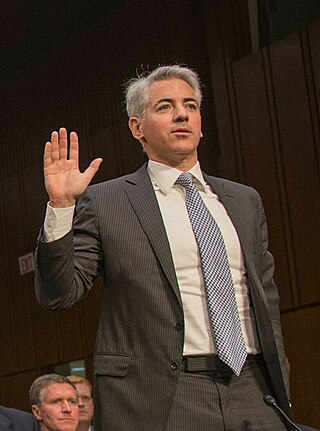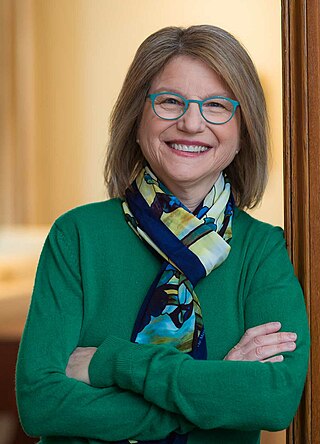Related Research Articles

The United Nations Relief and Works Agency for Palestine Refugees in the Near East is a UN agency that supports the relief and human development of Palestinian refugees. UNRWA's mandate encompasses Palestinians who fled or were expelled during the Nakba, the 1948 Palestine War, and subsequent conflicts, as well as their descendants, including legally adopted children. As of 2019, more than 5.6 million Palestinians are registered with UNRWA as refugees.
The Wharton School is the business school of the University of Pennsylvania (UPenn), a private Ivy League research university in Philadelphia. Established in 1881 through a donation from Joseph Wharton, a co-founder of Bethlehem Steel, the Wharton School is the world's oldest collegiate business school.
Antisemitism at universities has been reported and supported since the medieval period and, more recently, resisted and studied. Antisemitism has been manifested in various policies and practices, such as restricting the admission of Jewish students by a Jewish quota, or ostracism, intimidation, or violence against Jewish students, as well as in the hiring, retention and treatment of Jewish faculty and staff. In some instances, universities have been accused of condoning the development of antisemitic cultures on campus.

The Wexner Foundation is a philanthropic organisation which focuses on developing Jewish professional and volunteer leaders in North America and public leaders in Israel. Founded by Les Wexner, CEO of Limited Brands, and his wife, Abigail Wexner, in 1983, its headquarters are located in New Albany, Ohio, with additional offices in New York City and Jerusalem. In addition to their offered leadership programs, the Wexner Foundation supports other Jewish charities as well.

William Albert Ackman is an American billionaire hedge fund manager who is the founder and chief executive officer of Pershing Square Capital Management, a hedge fund management company. His investment approach has made him an activist investor. As of June 2024, Ackman's net worth was estimated at $9.3 billion by Forbes.

Different opinions exist among historians regarding the extent of antisemitism in American history and how American antisemitism contrasted with its European counterpart. In contrast to the horrors of European history, John Higham states that in the United States "no decisive event, no deep crisis, no powerful social movement, no great individual is associated primarily with, or significant chiefly because of anti-Semitism." Accordingly, David A. Gerber concludes that antisemitism "has been a distinctly minor feature of the nation's historical development." Historian Britt Tevis argue that, "Handlin and Higham’s ideas remain influential, and many American Jewish historians continue to present antisemitism as largely insignificant, momentary, primarily social."

Derek Jonathan Penslar, is an American-Canadian comparative historian with interests in the relationship between modern Israel and diaspora Jewish societies, global nationalist movements, European colonialism, and post-colonial states.

Mary Elizabeth Magill is an American legal scholar and academic administrator. She served as the 9th president of the University of Pennsylvania from 2022 to 2023, executive vice president and provost of the University of Virginia from 2019 to 2022, and dean of Stanford Law School from 2012 to 2019.
Marc Jeffrey Rowan is an American investor. He co-founded Apollo Global Management in 1990 with Josh Harris and Leon Black and took over as CEO in 2021. As of April 2024, Forbes estimated his wealth at $6.5 billion.

Students for Justice in Palestine is a pro-Palestinian college student activism organization in the United States, Canada and New Zealand. It has campaigned for boycott and divestment against corporations that deal with Israel and organized events about Israel's human rights violations. In 2011, The New York Times reported that "S.J.P., founded in 2001 at the University of California, Berkeley, has become the leading pro-Palestinian voice on campus."

Sally Ann Kornbluth is an American cell biologist and academic administrator. She began serving as the 18th president of the Massachusetts Institute of Technology in January 2023.

IfNotNow is an American Jewish group which opposes the Israeli occupation of the West Bank and Gaza Strip. Its membership demonstrates against politicians, United States policies, and institutions it perceives as supporting occupation, usually seeking to apply pressure through direct action and media appearances. It has been characterized variously as progressive or far-left.

Claudine Gay is an American political scientist and academic administrator who is the Wilbur A. Cowett Professor of Government and of African and African-American Studies at Harvard University. Gay's research addresses American political behavior, including voter turnout and politics of race and identity.
Antisemitism is a growing problem in 21st-century Germany.

StopAntisemitism is a privately-funded American advocacy group focused on combating antisemitism by exposing and shaming those that it considers antisemites on social media. The group also targets groups and individuals critical of Israel. The group's strategy has been described as doxxing; its CEO describes what she does as exposing its targets and showing them that their actions have consequences.
Antisemitism in the People's Republic of China is a mostly 21st century phenomenon and is complicated by the fact that there is little ground for antisemitism in China in historical sources. In the 2020s, antisemitic conspiracy theories in China began to spread and intensify. Some Chinese people believe in antisemitic tropes that Jews secretly rule the world.
Hirschy Zarchi is an American rabbi and shaliach for the Chabad Hasidic Jewish movement. Since 1997, he has been the founder and head of the Chabad house at Harvard University, one of the largest Chabad campus operations in the United States. He is also Jewish chaplain for students and alumni of Harvard.

On December 5, 2023, the United States House Committee on Education & the Workforce held a hearing on antisemitism on college campuses. The committee called a few university leaders to testify, including the presidents of Harvard University, the University of Pennsylvania, and the Massachusetts Institute of Technology.
Jews have faced antisemitism and discrimination in universities and campuses in the United States, from the founding of universities in the Thirteen Colonies until the present day in varying intensities. From the early 20th century, and until the 1960s, indirect quotas were placed on Jewish admissions, quotas were first placed on Jews by elite universities such Columbia, Harvard and Yale and were prevalent as late as the 1960s in universities such as Stanford. These quotas disappeared in the 1970s.
The University of Pennsylvania is a private Ivy League research university in Philadelphia, Pennsylvania, U.S. Its history began when in 1740, when a group of Philadelphians organized to erect a great preaching hall for George Whitefield, a traveling evangelist. The building was designed and constructed by Edmund Woolley and was the largest building in Philadelphia at the time, drawing thousands of people the first time in which it was preached. In the fall of 1749, Ben Franklin circulated a pamphlet, "Proposals Relating to the Education of Youth in Pensilvania," his vision for what he called a "Public Academy of Philadelphia". On June 16, 1755, the College of Philadelphia was chartered, paving the way for the addition of undergraduate instruction.
References
- 1 2 3 4 5 6 Meyersohn, Nathaniel (2023-10-19). "Harvard and UPenn donors are furious. It may have a financial domino effect". CNN . Retrieved 29 April 2024.
- 1 2 "Harvard's Gift Officers Are Worried About Backlash Over the School's Israel-Hamas Response. Here's Why". Harvard Crimson . 2023-11-29. Retrieved 1 May 2024.
- 1 2 3 4 5 6 "Wall Street titans help fuel Ivy League donor revolt". CNBC . 2023-11-02. Retrieved 29 April 2024.
- 1 2 Andersen, Travis (2023-10-13). "Philanthropist couple leaving Harvard Kennedy School board over university's response to Hamas attack". Boston Globe . Archived from the original on 2023-10-13. Retrieved 29 April 2024.
- ↑ "Wexner Foundation cuts ties with Harvard after Israeli billionaire Ofer quits board". CTech . 2023-10-16. Retrieved 29 April 2024.
- ↑ Berg, Madeline (2023-10-12). "Apollo CEO is calling for University of Pennsylvania leaders to resign after he says they refused to strongly condemn antisemitism". Business Insider . Retrieved 29 April 2024.
- 1 2 Mitovich, Jared (2023-10-15). "Huntsman family, longtime Penn supporters, will halt donations to 'unrecognizable' University". Daily Pennsylvanian . Retrieved 29 April 2024.